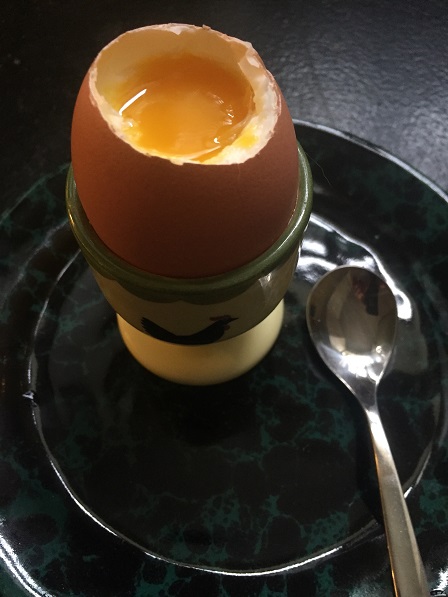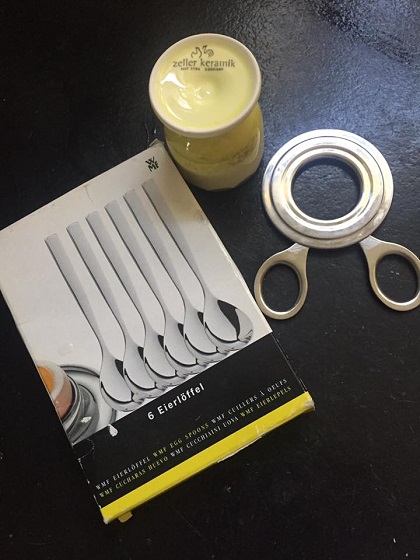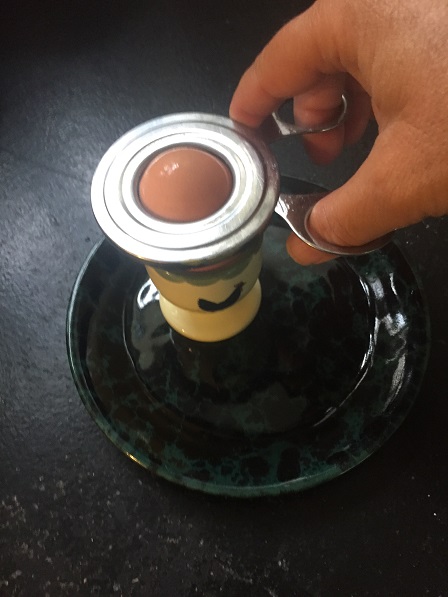What are German Eggs?
Well, it’s an affectionate name we’ve given to the style and method of eating an egg that we discovered in Germany and Austria. Back in the early 2000s, my then-husband lived and worked in Julich, Germany. He only came home for week visits about every 6 to 8 weeks, during the two years the company moved him there. Meanwhile, myself and 3 toddlers were living back in La Crosse, Wisconsin. Well, one day I decided instead of him flying home, that I should pack up the three kids despite their young age and take a trip to Germany instead of him coming home.
I spent a good part of a year planning it. Learning German, reading up on the countries, and planning a 2-week driving itinerary that would suit both parents and children alike. Once the trip was set, I packed up 3 kids (2, 4, and 6 years of age at the time) and boarded a KLM flight for Amsterdam for our summer vacation.
One of the things I loved was breakfast while we were there. You see I am not really a fan of traditional breakfast food. You know cereals, waffles, pancakes, and such. I much prefer to eat something more like dinner or lunch. Even now I’ll take a plate of leftovers over a standard breakfast. You can imagine the joy, if you are like me, to discover in Europe they have lots of things on the morning buffet that are more like lunch. Meats and sausages, bread, cheeses, and more! All fresh from the farm. My mouth is watering just envisioning some of the table spreads I remember coming down to.
Well, one of the staples on these tables was eggs. Not just hard-boiled eggs though, but what we would refer to as soft boiled. What made these eggs even tastier was the way they were served with their own special cup and utensils. They became the family favorite. So much so that I began the search during the trip to find my own set of Eierbecher (egg cups) and Eierlöffel (egg spoons), along with the special egg cracker.
Thus when we returned from Germany and Austria, the kids would request German eggs because that’s where they were introduced to the soft boiled egg. We have a tradition now of eating them for our holiday breakfasts, but they make the perfect treat for a leisurely Sunday morning breakfast. Mind you there is some trick to producing the perfect soft boiled egg and this is what I/we learned from our travels.
How to Make the Perfect Soft Boiled (German) Egg
2 eggs
Small bowl with cold water
Pot ( some say the glass is better than aluminum)
Bring a salted pot of water to a boil. Large enough, there is room for the eggs not to collide. Gently place eggs into boiling water. ( I use a slotted spoon to set in the boil slowly) Cover the pot and turn the heat down to low. Set timer for 5 minutes or 6 if you like your yolks a bit thicker. When the timer goes off, carefully remove the egg with a spoon and set it in the bowl of cold water. Note: if you are boiling more than 2 eggs, you will need a larger pot and add a minute or 2 more.
To eat, place the egg in your egg cup, use the top egg cracker to remove the top, then use the small spoon to scoop out the deliciousness. Salt and pepper as desired.
Serves 1
Lisa Rossmeissl is the owner of Boomerang Escapes, a home-based agency located in Old Bridge, New Jersey with agents in TN, MS, and WI.
She has been a professional travel consultant since 2008 and specializes in Australia and the South Pacific. Australia, New Zealand, Tahiti, Fiji, and Cook Islands are among the specialist certificates she holds. Her agency’s focus is on creating custom itineraries with their client’s wants, desires, and budgets in mind. She and her planners believe in getting to know the traveler to ensure they have a vacation to remember. With each planner specializing in a different market area, Boomerang Escapes can offer a wide variety of leisure vacation planning.





Leave a Reply